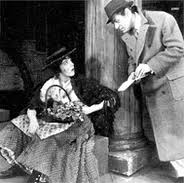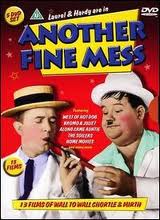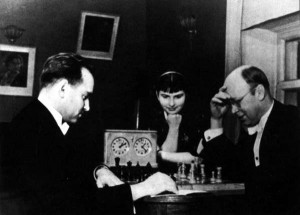At Café Figaro, besides the poker games on weekends, there was also the occasional field event. One I will remember for the rest of my life was the Sunday we went horseback riding in Staten Island. Much of Staten Island in those days was still “country”, farms and undeveloped land. There was, as yet, no Verrazano Bridge and the only way to reach Staten Island was by way of the South Ferry. In any case, led by Mary Travers (she of later Peter, Paul, and Mary fame) and her first husband, it was off we went to ride horses in the country. While riding may look like a perfectly easy and enjoyable pastime, that is a deception. If you are unused to riding, as I was, and you do it long enough, as we did for an entire day, it becomes sheer torture, with every bone in your body being jiggled around by the damned beast, while your aching muscles are striving to keep your bones together. There also was no way of quitting, as I had to keep up with the rest of the crowd. Eventually this “healthy” and “fun” ride ended, and we returned to blessed, horseless Manhattan, and I’ve been careful ever since never to get on the back of another horse.
The night they went to see “My Fair Lady,” without me was also memorable. I couldn’t make it that evening because I was working, but I remember the event because of how excited they all were when they returned to the Figaro later that evening. They came back from the show singing one song after another. Today, whenever I hear “On the Street Where You Live,” it instantly brings me back not to the show itself, but to that evening in the Figaro, and to the happy faces and voices of the people who had attended the performance of “My Fair Lady“ that particular evening.
Tom tried different things to make the Café Figaro pleasant (and to attract more paying customers). One of those efforts led to being closed down by music-hating cops. What made the cops close Figaro’s was that Tom had initiated a program of live chamber music (Bach, Beethoven, Mendelssohn and such) on Sunday mornings to go with the eggs benedict and brunch. The cops broke it up, claiming that Figaro’s didn’t have a cabaret license, and that this chamber music was definitely cabaret-style entertainment. The cops lame excuse was made official when the city found a judge who agreed with them. In any case, chamber music was a short-lived experiment.
A more successful effort was showing vintage films on certain evenings. I was the projectionist, and I lost track of how many times I saw Buster Keaton in “Cops” or Laurel and Hardy in “Another Fine Mess.” I even created musical accompaniment for the films. Figaro’s had a juke box which played only classical music, and I discovered that Prokofiev’s “Classical Symphony,” went quite well with the chaos of the Keaton comedy, particularly when hundreds of cops chased him around old time Hollywood. Prokofiev, Keaton, Laurel and Hardy, darkness, young couples, much laughter, coffee and Italian pastries was a wonderful mix. It was a time I remember with great pleasure.




Dear Alex, the police power of the state can ruin a good time. That should have been a tip off to you.